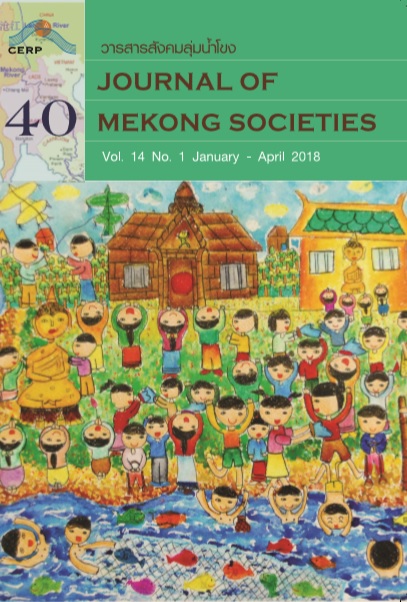Peri-urban Agriculture in Ubon Ratchathani City: Pressure and Persistence
Main Article Content
Abstract
This article argues that peri-urban agriculture (PUA) has persisted as fading pockets of resistance are now supporting it because of the new economic opportunities it presents, as well as for its contribution to personal well-being or as part of a planned multi-functional landscape. Qualitative data were drawn from fieldwork in 2015 and 2017 in a peri-urban community, Tha Wang Hin in Muang district of Ubon Ratchathani province. The article addresses tensions around changes in land use and livelihoods that have accompanied urbanization. The findings show that PUA has long been practiced in the community as a food source for urban people, and has helped to maintain good incomes for the producers and good relationships between them and urban dwellers. The article also identifies the social and economic values held by aging peri-urban farmers who have practiced PUA, and the ways in which they are able to maintain a strong sense of place and personal well-being in the midst of rapid change in the physical and socio-economic landscape.


